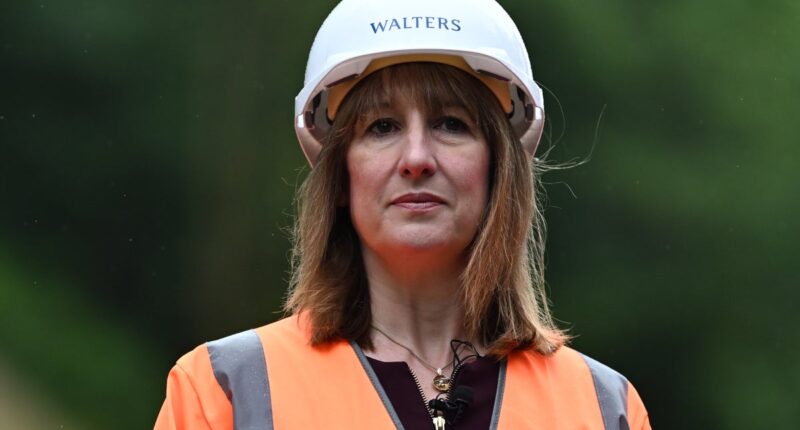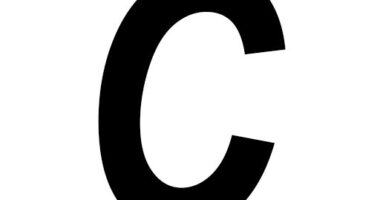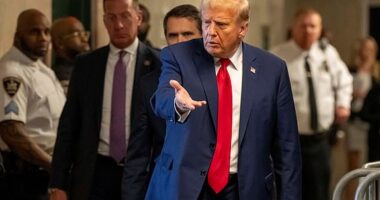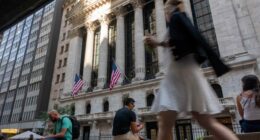
Pretty much since her first day as chancellor of the Exchequer, when she was briefed by Treasury officials about the notorious Tory “black hole” in the public finances, Rachel Reeves has found good news to be something of a stranger. So she will be relieved that the Bank of England has reduced interest rates, in its fifth cut in a year, to 4 per cent.
It’s the lowest level since March 2023, and is a welcome break in the dark economic clouds. The governor of the Bank, Andrew Bailey, was happy to confirm that interest rates will continue to take a downward path, and the Bank’s forecast for UK economic growth, while extremely modest by most historical standards, has been nudged up a little.
However, this cut in the cost of borrowing is not quite unalloyed good news for the government. Four of the nine members of the Bank’s Monetary Policy Committee actually voted to hold the rate at 4.25 per cent. Mr Bailey was also at pains to stress that the future course of the declared downward path in rates is surrounded by “genuine uncertainty”, with significant risks to the upside and the downside over an unknown time period.
To translate this from the impenetrable dialect of “central bankese”, Mr Bailey was trying to tell the country – including Ms Reeves – that it may be some considerable time before the next cut is announced, and when it is, it is unlikely to be more dramatic than the “baby steps” taken since the first cut in Bank rate this cycle was made a year ago. “That’s your lot for now,” as the governor didn’t quite say, especially if world food and energy costs keep climbing.
There is also the unhappy irony that it is the very weakness of the economy, exacerbated by Ms Reeves’s successive tax hikes, that has helped persuade the Bank’s policymakers that a small cut in the cost of borrowing, a mild stimulus, is both necessary and an acceptable risk, given that headline inflation is set to accelerate somewhat later in the year.
Ms Reeves – appearing on television in a hi-vis vest with an undersized hard hat perched precariously on her barnet – was not entirely convincing when she claimed credit for the cut in the rate, which she suggested was a result of her having “stabilised” the economy. Patently not.
Meanwhile, the outlook for the public finances remains gloomy, not to say unstable, with the National Institute of Economic and Social Research predicting an annual shortfall of some £41.2bn between government revenues and spending by 2029 – way more than was allowed for in Ms Reeves’s fiscal rules. So Mr Bailey’s ray of sunshine will soon be overcast by the grey clouds of the October Budget.
In fairness, the chancellor was hardly responsible for the ballooning of the national debt during the global financial crisis (and even more during Covid). It is now costing as much as the defence budget to service. Yet it is also clear that Ms Reeves has made her share of mistakes, notably overdoing the increase in employers’ national insurance contributions, failing to push welfare reform through the Commons, and never building enough of a buffer into her plans to protect them from shocks.
However, it can now be seen that the greatest error she and Sir Keir Starmer have made in economic management pre-dated their time in office, and that was to absolutely rule out any increase in the rate of income tax, national insurance or VAT. It was a manifesto commitment, endlessly repeated: “Labour will not increase taxes on working people, which is why we will not increase national insurance, the basic, higher, or additional rates of income tax, or VAT.”
As every fiscal watchdog noted at the time, both main parties were presenting fantastical plans to the electorate. Labour should have known better than to deceive itself about its options; the main elements in the crisis we are facing now were easily foreseen before the general election.
The true folly of this self-imposed straitjacket is now being felt all too painfully – the sheer scale of the corrections required demands both cuts to public spending plans and increased taxes on income. There are merits in raising levies on online gambling, for example, as Gordon Brown is suggesting could help to alleviate child poverty – or in ramping up fuel duty, or taxing capital gains – but it is only the bigger revenue-raisers that can end these incessant Budget crises and create stability.
Ms Reeves can’t feasibly hike employers’ national insurance contributions – a jobs tax – once again. Raising income tax is the fairest and most reliable way forward. As for cutting public spending, given that the parliamentary Labour Party has shown itself so reluctant to consider such moves, and the defence budget has to be increased, the chancellor’s options are even more constrained.
It is coming to be widely accepted that there is no alternative but to raise income tax. “Working people” will pay more. This should not be so outrageous. It is something that all governments have to do from time to time, even if they foolishly promise and pretend otherwise.
It was, after all, not that long ago that the then prime minister, Boris Johnson, and his chancellor, Rishi Sunak, broke a similarly solemn manifesto pledge. In 2023, because of the extraordinary circumstances following the pandemic, they imposed the biggest package of tax rises since the Second World War. They were right to do so. It was to help pay for the great national mortgage run up during the Covid emergency.
The truth is that similar measures are needed once again, because with interest rates having normalised, the debt burden is becoming intolerable. Perhaps, should the government’s growth strategy begin to yield results, such increases can be reversed in due course. But for now, the chancellor’s Budget speech has all but written itself.







